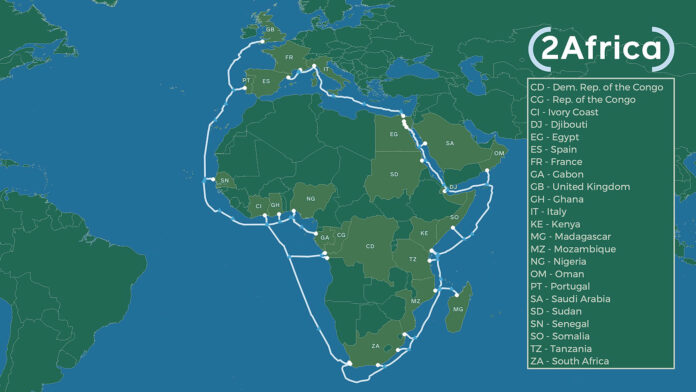Sustainable industrialisation and economic diversification will occur on the African continent if African countries invest in research and development, the Economic Commission for Africa (ECA) has declared.
Its Acting Executive Secretary, Mr Antonio Pedro, stated on Monday that such investments would help to harness technology for a green, inclusive and resilient Africa.
Pedro spoke at the opening of the fifth African Science, Technology and Innovation (STI) Forum 2023 in Niamey.
The STI forum is a side event heralding the 9th Africa Regional Forum on Sustainable Development (ARFSD).
The theme of this year’s Forum is “Accelerating development and diffusion of emerging technologies.’’
“To build on the innovative spirit, we must strengthen the enabling environment.
“This will be done through informed policies, increased investment in research and development, and harnessing the support of the private sector more effectively.
“Africa should be at the forefront of a green transformation to accelerate growth, diversify economies and deliver on the Sustainable Development Goals (SDGs) and Agenda 2063,’’ he stated.
The SDGs or Global Goals set by the UN in 2015 are a collection of 17 interlinked objectives designed to serve as a “shared blueprint for peace and prosperity for people and the planet now and into the future’’
Pedro also stated that: “our key opportunity lies in the renewable energy market. Its market value in 2020 was estimated at 881.7 billion dollars and is projected to reach 1,977.6 billion dollars by 2030.’’
He said ECA and its partners had completed the STI policy design and implementation guide which countries could use regardless of the policy implementation cycle.
In the statement, Niger’s Minister for Secondary and Higher Education, Research and Technology, Mr Habi Mahamadou, said STI was a cross-cutting theme that depended on policy framework, education, and infrastructure.
According to Mahamadou, the biggest challenge of STIs in Africa is lack of human and technological capacity.
“Countries need to strengthen their capacities in science, technology and innovation.
“Even though STI is key in achieving Africa’s development agenda 2063 and SDG agenda 2030, African governments are still lagging in their commitment to STI.
“STI can only be accelerated by human capital infrastructure development,’’ he stressed.
Mr Jean-Paul Adam, ECA Director for Technology, Climate Change and Natural Resources Management, said science and technology were “innovation catalysts’’.
Adam said it was important for African countries to upscale what they already did in science and technology.
He said: “we must have human capital development linked to the diaspora to transform innovation in Africa and leverage the opportunity provided by the African Continental Free Trade Agreement.
“African governments must have clear policies on science and technology, give tax incentives, and have measurable objectives in the development plan for effective transition from a consumer Africa to a producer Africa.’’
Mr Dimitri Sanga, Director, UNESCO Regional Office for West Africa, said it was important to have open science in Africa.
According to Sanga, there is the need to promote open access to publications and scientific data, transparency of peer review, and participatory science.
He added that UNESCO had developed the recommendation on open science.
“Member states adopted this recommendation in 2021, and we are working with them to implement it.
“I am optimistic about the results of our work, which shall contribute fully to enable Africa to be a resilient, green and prosperous continent,’’ Sanga said.
Mr Mohamed Belhocine, African Union Commissioner for Education, Science, Technology and Innovation, said the commission had developed a plan for the education of women.
According to Belhocine, the plan will address women’s educational challenges and encourage more girls to undertake Science, Technology, Engineering, and Mathematics (STEM) education.
STEM is an umbrella term used to group together the distinct but related technical disciplines of science, technology, engineering, and mathematics. The term is typically used in the context of education policy or curriculum choices in schools
Belhocine added that digital skills, science and technology were important to building digital transformation in Africa.
Meanwhile, Rwanda’s Minister of Education, Ms Valentine Uwamariya, provided an update on the 4th ARFSD forum held in Kigali, Rwanda, in 2022.
Uwamariya said that four countries had joined the Alliance for entrepreneurs universities in Africa formed during the Forum.
“STI Forum has been organised in May 2023, and Africa will take a lead role.
“Collaboration centre for science and technology between ECA and the Rwandan government has been finalised,” she said.
Emma Theophilus, Deputy Minister of Information and Communication Technology in Namibia, noted that funding for research and development, particularly in STI by countries, was still low.
Theophilus said that this, together with census on capacity on STI, needed to be strengthened in the systems.
The results of the two-day STI side event will feed into the work of the African Regional Forum on Sustainable Development, which will begin from February 28 to March 2 in Niamey.




